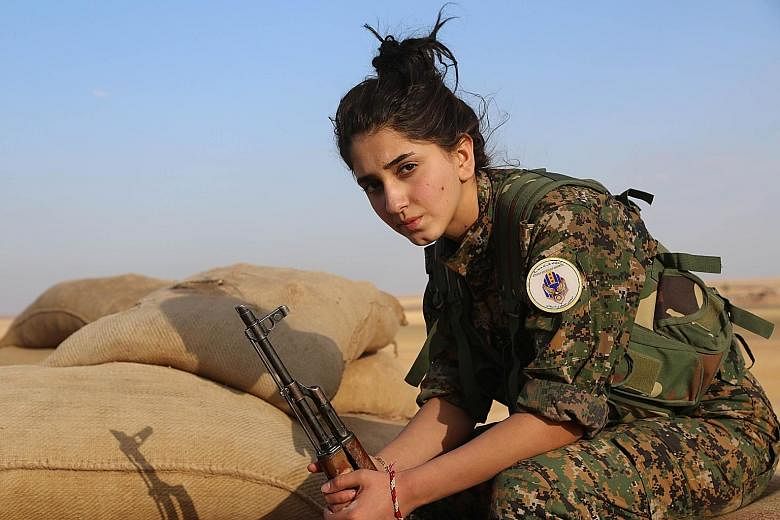AL UDEID AIR BASE (Qatar) • As the United States prepares to intensify air strikes against Islamic State in Iraq and Syria (ISIS) militants, the Arab allies who with great fanfare sent warplanes on the initial missions there a year ago have largely vanished from the campaign.
The Obama administration heralded the Arab air forces flying side by side with US fighter jets in the campaign's early days as an important show of solidarity against ISIS. Top commanders such as General Lloyd Austin III, who oversees operations in Syria and Iraq, still laud the Arab countries' contributions.
But as the US enters a critical phase of the war in Syria, ordering Special Operations troops to support rebel forces and sending two dozen attack planes to Turkey, the air campaign has evolved into a largely US effort.
Administration officials have sought to avoid the appearance of another US-dominated war, even as most leaders in the Persian Gulf seem more preoccupied with supporting rebels fighting the government of Syria's President Bashar al-Assad.
Now, some of those officials note, with resignation, the Arab partners have quietly left the US to run the bulk of the air war in Syria.
Saudi Arabia and the United Arab Emirates (UAE) have shifted most of their aircraft to their fight against Iranian-backed Houthi rebels in Yemen.
Jordan, reacting to the grisly execution of one of its pilots by ISIS and in a show of solidarity with the Saudis, has also diverted combat flights to Yemen. Jets from Bahrain last struck targets in Syria in February, coalition officials said. Qatar is flying patrols over Syria, but its role has been modest.
"They've all been busy doing other things, Yemen being the primary draw," Lieutenant-General Charles Brown Jr, who leads the air war from a command centre at this sprawling base in Qatar, said of the Arab allies, who he said still fly periodic missions in Syria and allow US jets to use their bases.
The UAE last carried out strikes in Syria in March. Jordan last did so in August and Saudi Arabia in September, according to information provided by allied officials last week. But the Arab allies insist they are still playing an essential, if less active, military role in the war.
"Jordan's commitment to this fight is unwavering," said Ms Dana Zureikat Daoud, a spokesman for the Jordanian Embassy in Washington. "We remain an active partner and contributor to the international coalition, and continue to conduct air strikes against Daesh targets." Daesh is an Arabic acronym for ISIS.
The engagement of Western allies such as France and Australia has also been limited. They have conducted a smattering of strikes in Syria but have reserved most of their firepower for ISIS targets in Iraq.
New Canadian Prime Minister Justin Trudeau has promised to fulfil his campaign pledge to end Ottawa's role in the air campaign. And none of the Western allies appears eager to join the US in basing warplanes at Incirlik in Turkey, a move that would make it easier to increase strikes against militants in northern Syria and Iraq.
The head of Britain's armed forces, General Nicholas Houghton, yesterday said the country was "letting down" allies by not participating in air strikes against ISIS.
Britain's Parliament has yet to be convinced of the need to join air strikes in Syria, and an influential committee of MPs recently advised against action.
"To an extent, yes, we are letting our allies down by not being a full player," Gen Houghton told Sky News. Foreign Secretary Philip Hammond later denied that the government had given up on winning a parliamentary vote.
"We are in exactly the same place that we've been for months," he told the BBC. "When we think it's right to do so, when we think we have a consensus, we will go to the House of Commons."
NEW YORK TIMES, AGENCE FRANCE-PRESSE

